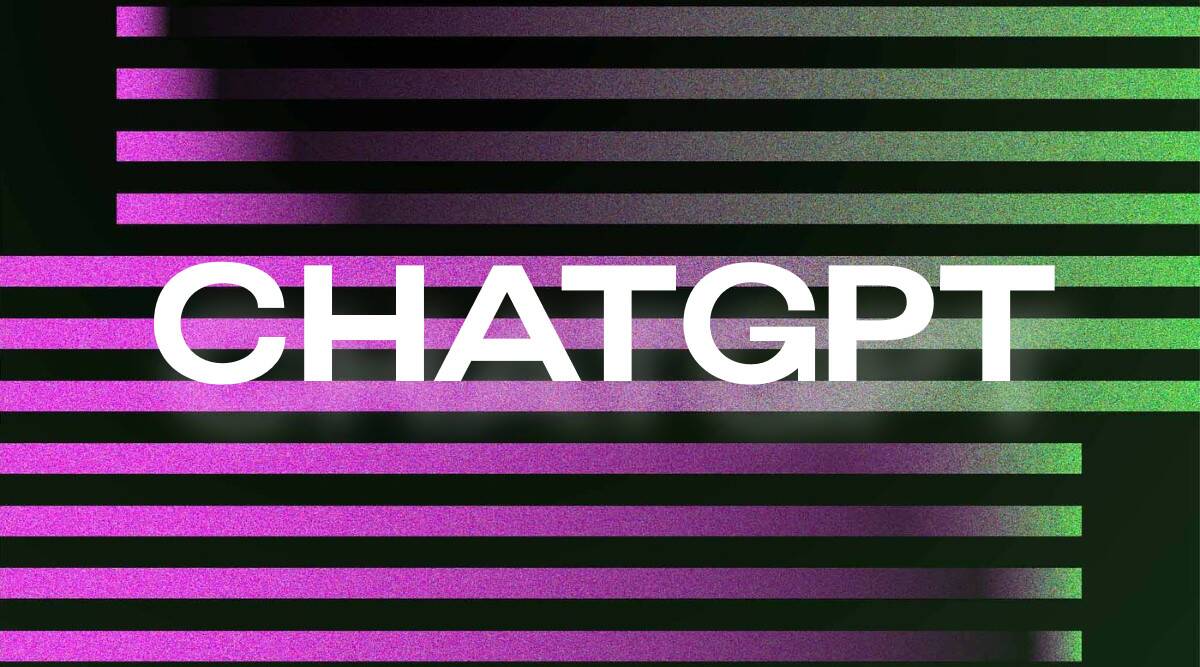Karnataka Education institutions begin crackdown on usage of ChatGPT, other AI tools
The nature of the platform has caused apprehensions among educational institutions which believe that students can easily submit their assignments with the assistance of ChatGPT.
 Launched in November 2022, ChatGPT developed by OpenAI, is an open-source platform that can write papers, articles and essays with proficiency, after a simple command (Express photo)
Launched in November 2022, ChatGPT developed by OpenAI, is an open-source platform that can write papers, articles and essays with proficiency, after a simple command (Express photo) While the ChatGPT fever has gripped youngsters across the globe, in Bengaluru however, the AI agent could land you in trouble. Many private universities in Bengaluru are beginning to crack down on ChatGPT, which has become popular among the student community.
Launched in November 2022, ChatGPT developed by OpenAI, is an open-source platform that can write papers, articles and essays with proficiency, after a simple command. And this service is available to anyone with an internet connection, for free.
According to OpenAI’s description, ChatGPT can answer “follow-up questions”, and can also “admit its mistakes, challenge incorrect premises, and reject inappropriate requests.” It is based on the company’s GPT 3.5 series of language learning models (LLM). GPT stands for Generative Pre-trained Transformer 3 and this is a kind of computer language model that relies on deep learning techniques to produce human-like text based on inputs.
However, the nature of the platform has caused apprehensions among educational institutions which believe that students can easily submit their assignments with the assistance of ChatGPT. As a result, universities in Karnataka are coming up with their own policy and are holding review meetings on the judicious use of the ChatGPT platform in a way that does not impact the productivity and creativity of students.
In fact, R V University is one of the early education institutions to have come up with a policy regarding the ‘fair use of AI Agents’ on January 1.
Dr Sanjay Chitnis, Dean, School of Computer Science and Engineering, emphasised that AI agents such as ChatGPT, GitHub copilot, or blackbox should not be used when original submission is expected from students or faculty, such as code in the first-year programming course or original essays, answers to questions etc.
Chitnis told The Indian Express, “Students were experimenting with AI agents just for fun, but there are possibilities of students using it for writing assignments and coding purposes. Hence, when the platform became viral, we introduced a policy for the ‘fair use’ of AI agents that does not impact their learning. There is a genuine way to use tools like ChatGPT where we want students to expedite their assignment works and by telling them that in the future the industry will also use such platforms for work productivity”.
According to the university, “The policy will be enforced through blocking these sites during the lab and tutorial sessions and random check by asking students to reproduce the content. If a significant difference is found, disciplinary action will be taken”. However, it allows the ‘fair use’ of AI agents when the students’ skill of writing or coding is not under evaluation, but the skill of problem formulation, asking effective questions and providing creative or innovative solutions are being tested.
Dr M D Venkatesh, Vice-Chancellor, Manipal Academy of Higher Education-MAHE, is expected to come up with a policy in another ten days after a review meeting this week. “We will have a review meeting and come up with a policy soon that looks at the implications of such AI tools, analyse the weightage of assignments, analyse the extent of use of ChatGPT among students and other things. AI agents have implications in the higher education system and we will have to take a critical look at it. We will conduct an internal assessment including talking to the students and find out how assessment of assignments can be made objective and look at the impact of ChatGPT on this,” said Venkatesh.
Professor Kiran Jeevan, also the Public Relations Officer, St Joseph’s University, was shocked to receive a ‘well-written’ apology letter for misconduct from a student who used ChatGPT to write it. As a result, the university has had an informal discussion and raised concerns against the use of such AI tools in day-to-day lives that can impact students’ reading and writing skills.
“The university had an informal discussion last week on how AI agents can undermine the entire assignment reading and learning culture of students. Reading, learning, and writing are very integral to students at higher education levels and with such AI tools, all these skills are likely to vanish away. I have already spoken about ChatGPT in my class cautioning students against using the platform for assignments which amounts to plagiarism and is unethical,” said Jeevan adding that the university will take a formal decision on the use of ChatGPT soon.
- 01
- 02
- 03
- 04
- 05































